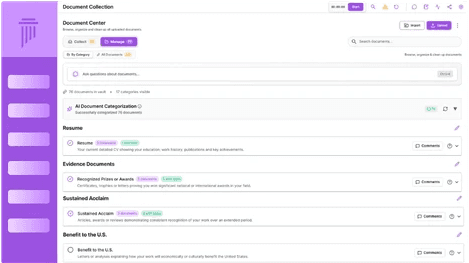The first thing Joe Martinez learned about labor was not written in any statute. It came from hundreds of kitchen tables and dusty roadways, from coffee farms in Central America to rose fields in South America. Sit with people long enough, he says, and you hear the same three requests. Recognize me as a person. Recognize that my work has value. Pay me fairly.
Martinez grew up in San Antonio, the son of Mexican immigrants, and planned to go to law school after graduating from the University of Washington. When the economy cratered in 2008, he chose a different path and joined the United Farm Workers as an international labor advocate. The assignment was sweeping. Map how workers move. Understand the corridors from Central and South America, Asia, and the Middle East. Compare what happens in law to what happens in the field.
He interviewed about 600 families across 10 Mexican states and studied farm labor in Guatemala, Nicaragua, Colombia, Ecuador, and Brazil. The pattern was stark. In supply chains where labor was labeled non-skilled, workers were often treated as a cost to be minimized rather than as professionals to invest in. “When a workforce is seen as a burdensome line item,” he explains, “turnover becomes normal and investment dries up.”
Out of that research came Cierto, founded in 2014. The goal was deceptively simple: build a recruiter that operates in daylight. Make recruitment a relationship instead of a transaction. Follow every rule on both sides of the border. Bring transparency all the way back to communities of origin. And prove that doing the right thing is not only possible, it is competitive.
Much of this began as theory, Martinez admits. Responsible recruitment sounded slow and resource intensive. Over the last decade, his team has shown clients something different. Ethical hiring pipelines can deliver trained workers who arrive ready to work, reduce damage and decay, improve retention, and protect brands in a market where human-rights due diligence is no longer optional. “Responsible recruitment is a win for everyone,” he says. “Within two to three years, the dividends show up in productivity, efficiency, and retention.”
Martinez situates today’s labor debate inside a larger shift. He hears a growing expectation that the private sector will own more of the solution set, from compliance to proof of ethical practice. That push is reinforced by state and global transparency standards and by large retailers building grading systems for vendors on human-rights and environmental performance. For employers that once outsourced recruitment and looked away, the new ask is to show how the sausage gets made. The paradox, he notes, is real. Suppliers fear opening the books only to discover a problem that jeopardizes a relationship. The way through is partnership and a clear ROI model.
That ROI begins with clarity about costs and outcomes. Employers budgeting roughly 800 to 1,500 dollars per worker in processing, logistics, and transport do not just want headcount. They want candidates trained on the realities of modern work. “If a worker paid to get to your job site, their first focus is getting out of debt,” Martinez says. “We are here to make sure workers arrive without those pressures and that brands are protected.”
He also believes today’s definitions of skill will not survive the decade. Mechanization in agriculture is accelerating. There are already machines that harvest strawberries and apples. The worker of the near future will need to keep those machines running and capture what the machine misses. In produce, in construction, in landscaping, QR codes and scanners are replacing clipboards. “We cannot just find anyone in a foreign country who has never seen these systems and expect day-one productivity,” he says. Venture dollars are flowing into tools that promise tenfold improvements. Those returns will only materialize with a workforce that understands and embraces the technology.
Martinez divides prospective clients into two camps. Some want the cheapest experiment to test recruitment. Others see talent as an investment that underwrites growth and resilience. Cierto is built for the second group. Its community-based model, he argues, is how employers move from quick fixes to continuity of supply, from churn to retention, and from reputational risk to brand advantage.
The work is not purely transactional for him. One of his favorite moments comes after a relationship matures. He takes employers to communities of origin to see how remittances and fair recruitment change real lives. “Consumers can know their produce and commodities are harvested in a dignified way,” he says. “Vendors protect their brands. Workers are recognized in the supply chain. Everyone wins.”
Asked what advice he would give to law firms, companies, or policymakers designing better workforce systems, Martinez does not hesitate. Start with responsible recruitment. Measure it over multiple seasons, not weeks. Expect the ROI to grow as technology changes the work and as markets reward transparency. And, he adds, stay curious. Ask who maintains the hotels, who tends the yards, who harvests the food, and how they were recruited. Curiosity is not just a value; it is an accountability mechanism. “Each one of us doing our part keeps momentum moving forward,” he says. “We all deserve a seat at the table.”













